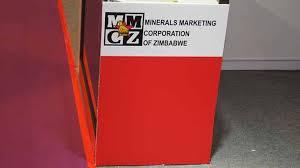News / National
Zimbabwe pushes for total ban on chrome ore exports
05 Aug 2025 at 12:11hrs |
435 Views

The Minerals Marketing Corporation of Zimbabwe (MMCZ) says it will engage the Ministry of Mines and Mining Development to push for a complete ban on chrome ore exports as part of efforts to drive investment in domestic beneficiation.
The proposed move comes amid mounting pressure in the global chrome ore and concentrate market, where weak stainless steel demand has contributed to swelling stockpiles in China — now estimated at nearly 2,9 million tonnes.
Although Zimbabwe already has a partial ban on raw chrome exports to promote domestic processing, the Government retains the discretion to issue special licences with export quotas for certain entities. MMCZ wants this loophole closed to fully align with the country's value addition and beneficiation policy.
"Despite a positive long-term outlook for the global chrome market driven by expected stainless-steel production growth, the chrome ore and concentrate market remained pressured by weak global stainless-steel demand and growing stockpiles in China," said MMCZ general manager, Dr Nomsa Moyo.
"This necessitates a strategic review of chrome ore export policies given the current market oversupply."
The MMCZ argues that a total ban would create a more competitive environment for local ferrochrome producers, stimulating investment in smelting capacity and creating jobs.
The ferrochrome sector, which processes chrome ore into a higher-value product, is projecting increased sales in the second half of 2025. Industry players attribute the expected growth to new production capacities coming on stream and a stabilising market for refined ferrochrome.
The move, if implemented, could mark a significant shift in Zimbabwe's mineral export strategy, with policymakers betting on beneficiation to maximise earnings from the country's rich mineral resources.
The proposed move comes amid mounting pressure in the global chrome ore and concentrate market, where weak stainless steel demand has contributed to swelling stockpiles in China — now estimated at nearly 2,9 million tonnes.
Although Zimbabwe already has a partial ban on raw chrome exports to promote domestic processing, the Government retains the discretion to issue special licences with export quotas for certain entities. MMCZ wants this loophole closed to fully align with the country's value addition and beneficiation policy.
"Despite a positive long-term outlook for the global chrome market driven by expected stainless-steel production growth, the chrome ore and concentrate market remained pressured by weak global stainless-steel demand and growing stockpiles in China," said MMCZ general manager, Dr Nomsa Moyo.
"This necessitates a strategic review of chrome ore export policies given the current market oversupply."
The MMCZ argues that a total ban would create a more competitive environment for local ferrochrome producers, stimulating investment in smelting capacity and creating jobs.
The ferrochrome sector, which processes chrome ore into a higher-value product, is projecting increased sales in the second half of 2025. Industry players attribute the expected growth to new production capacities coming on stream and a stabilising market for refined ferrochrome.
The move, if implemented, could mark a significant shift in Zimbabwe's mineral export strategy, with policymakers betting on beneficiation to maximise earnings from the country's rich mineral resources.
Source - The Herald
Join the discussion
Loading comments…




















.png)
















